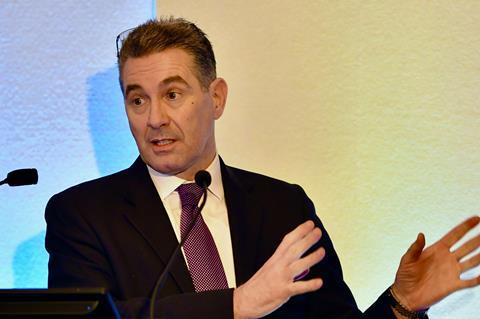Solicitors Regulation Authority leaders have predicted that practitioners could suffer during the transition of anti-money laundering supervision to the Financial Conduct Authority.
Chancellor Rachel Reeves announced yesterday that the SRA’s AML responsibilities would transfer to the FCA at a date yet to be determined.
Speaking to the media at the annual SRA compliance conference on Tuesday, chief executive Paul Philip revealed he had only found out about the change at the start of this week. ‘We would say we are disappointed but this is a wider government issue,' he said. 'Our concerns are about transition and how long it would take. We have got to try and keep the show on the road.’
The SRA, comfortably the biggest of the 22 professional body supervisors, had responded to a government consultation two years by saying it wanted to be the consolidated legal sector supervisor.

That option has been rejected by the government, which has instead decided to designate the FCA as Single Professional Services Supervisor (SPSS) for AML.
Firms that have been on the end of the SRA’s crackdown in recent years may welcome such a change, but the FCA has unlimited fining powers and less regular contact with the legal profession. The change also raises the prospect of law firms dealing with multiple regulators, each with a different approach and outlook.
Philip, who retires from the SRA next week, pointed out that the organisation has 280 employed solicitors and is better placed to deal with law firms.
‘We bring that experience to bear,’ he added. ‘Part of the argument for us [being the single regulator] is that we better understand the practice of law.’
SRA chair Anna Bradley added: ‘In order to apply [AML regulation] you need to understand how this bit of the market operates. The FCA will have to develop an expertise which it doesn’t have at the moment. How the FCA regulates AML should be a matter of very significant interest for the profession. We [at the SRA] don’t always do things in the same way. There will be big issues for the profession - the FCA model is very different to ours.'
The transfer of AML regulation naturally takes away a big element of the SRA’s work and adds a whole layer of extra responsibility for the FCA.
As of October 2023, the SRA supervised 23,275 beneficial owners, officers and managers spread across more than 6,000 law firms in scope. The SRA currently has 30 full-time staff dedicated solely to AML regulation.
Steve Smart, joint executive director of enforcement and market oversight at the FCA, said the changes will simplify the supervision of professional services, ensure more consistent oversight and help the authority identify and disrupt crime.
He added: 'The FCA will work closely with the government, the Office for Professional Body Anti-Money Laundering Supervision (OPBAS), Professional Body Supervisors, HMRC, the firms we will be supervising and others, as we work together to equip the UK to better fight financial crime. We can draw on our extensive expertise in this area to facilitate a smooth transition and ensure effective regulation.'
This article is now closed for comment.



























19 Readers' comments